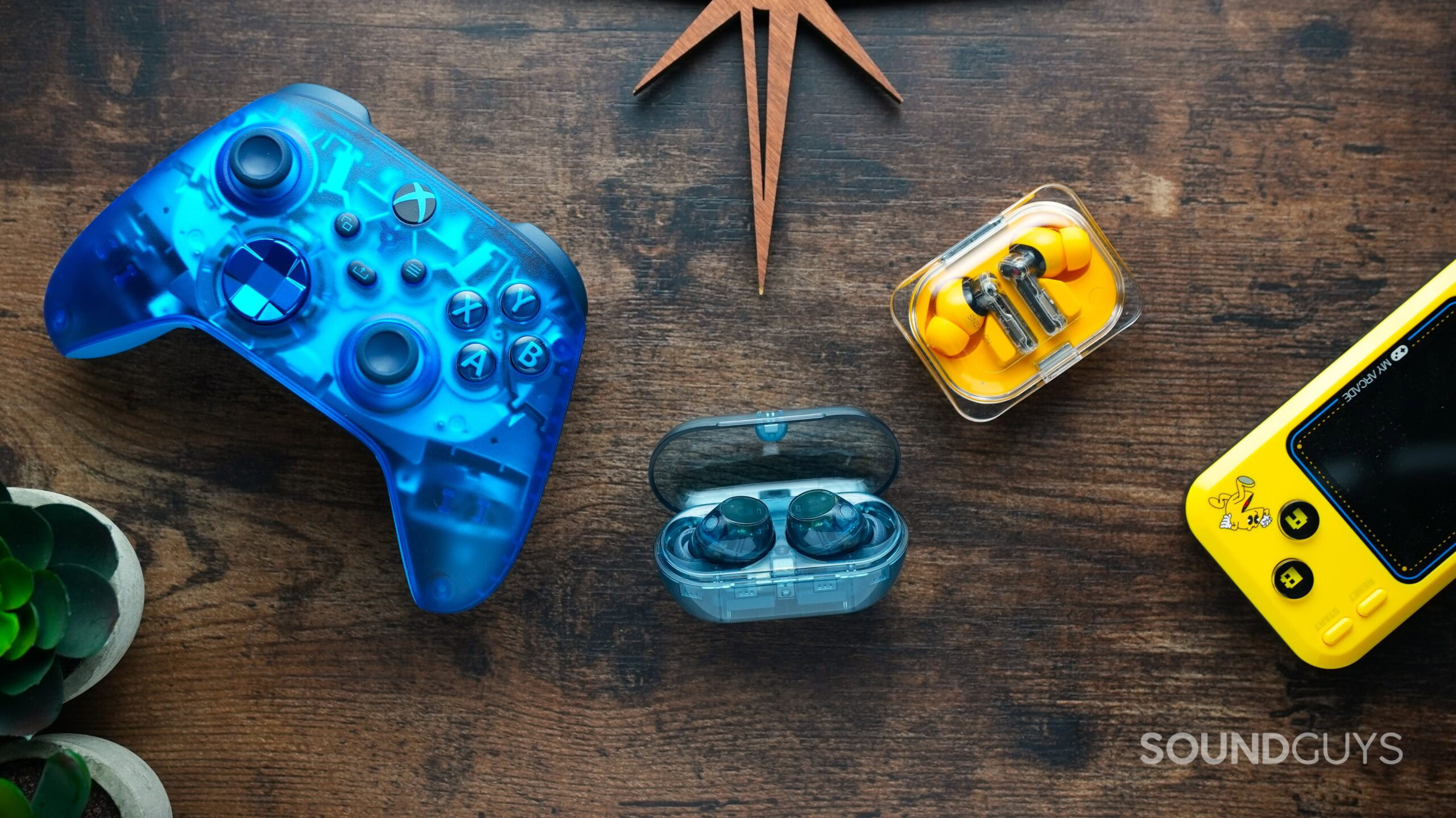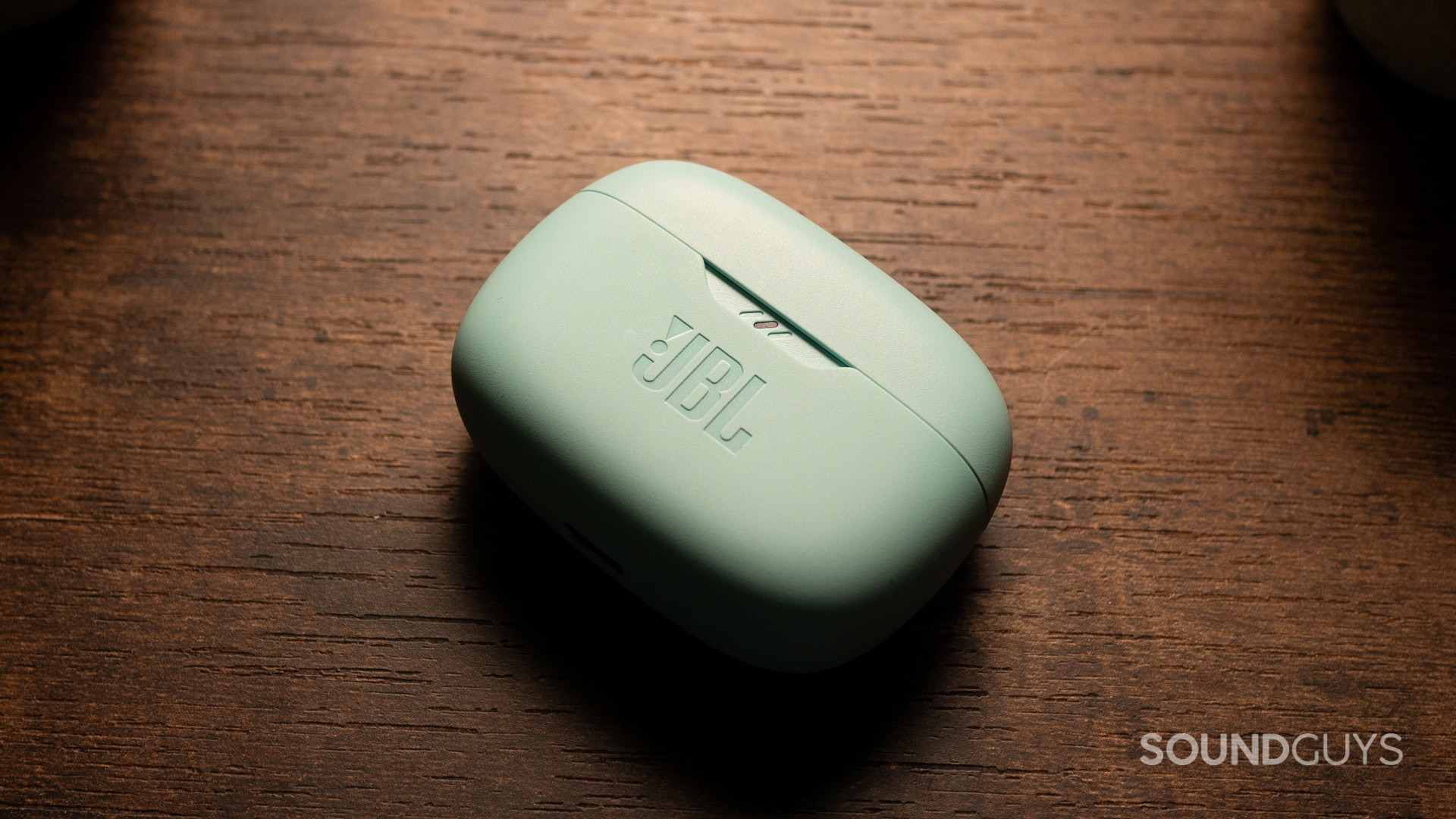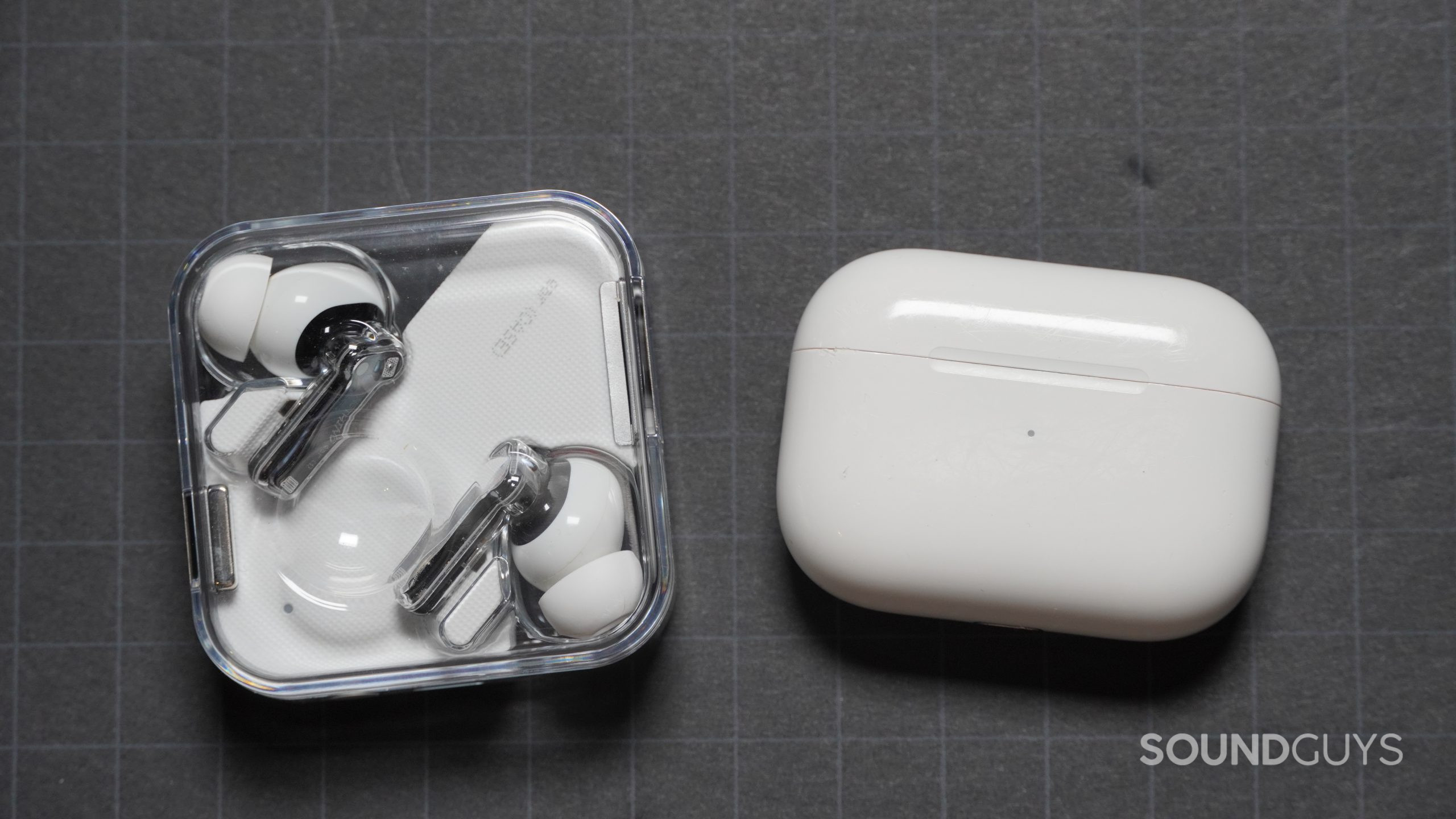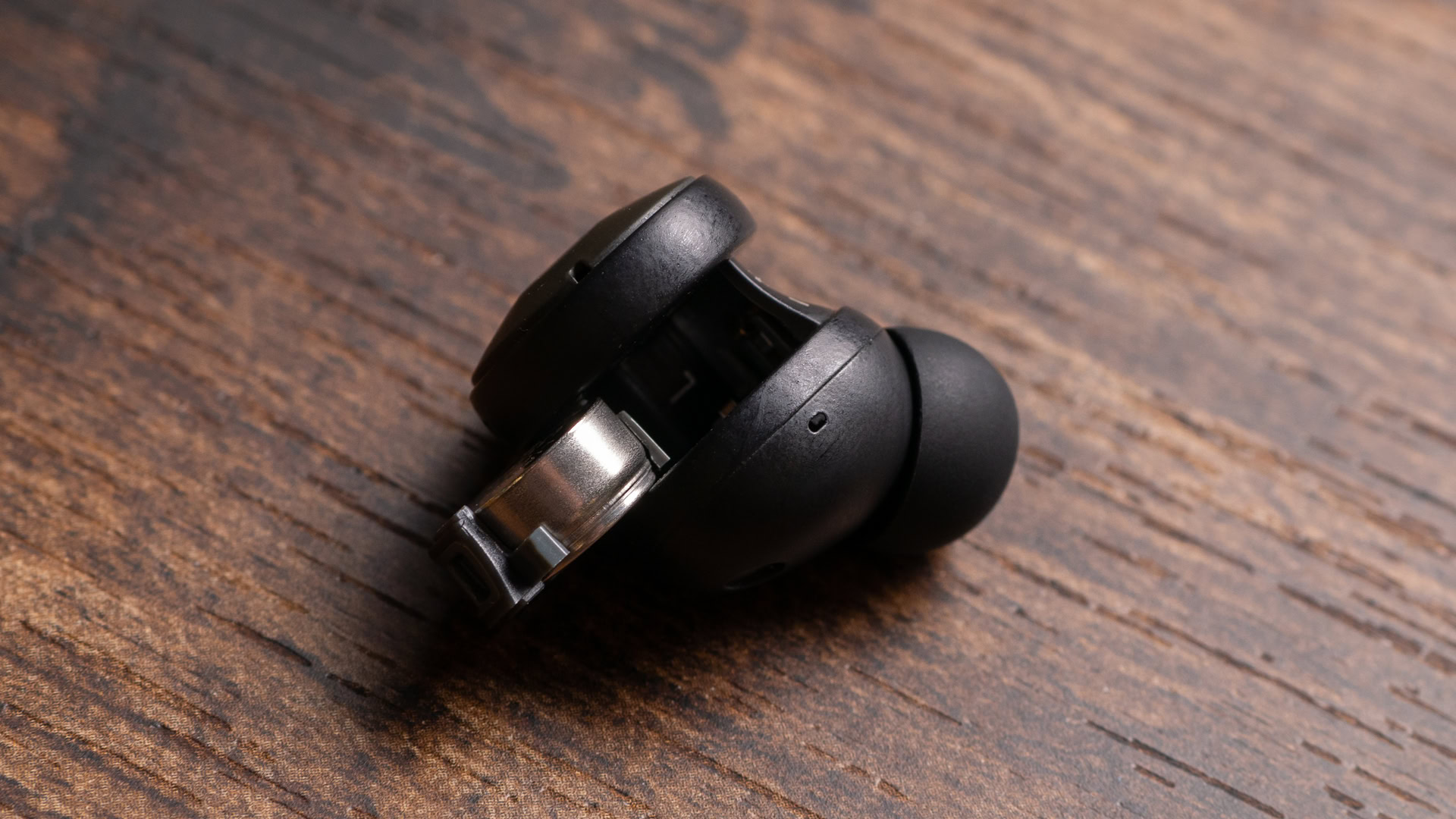All products featured are independently chosen by us. However, SoundGuys may receive a commission on orders placed through its retail links. See our ethics statement.
Transparent tech taps into something we’ve all been missing
May 17, 2025

As someone who reviews a constant stream of audio technology, sometimes everything starts to look the same. Perhaps it’s brands taking fewer design risks with their devices or general cultural taste tending towards blandness, or a bit of both, but looking around at the gadgets across my desk and on the streets on people’s heads and in their hands, it all feels a tad boring. There have been times for me, as I’m sure for you, when tech sparks joy and wonder. In a small but significant way, transparent tech is one form that has brought back the fun factor.
One of my core memories as a kid is holding up my Game Boy Color and being able to see the magic inside—wires and chips beneath the clear purple plastic. But most of the devices I handle now are sealed, sterile slabs of glass and metal. Transparent tech is making a comeback, and I think it’s more than just nostalgia—it’s a reaction to the bland, homogenized world of modern gadget design.
Are you a fan of transparent tech designs?
The Age of average

We’re surrounded by sameness. Phones, laptops, and earbuds all come in the same neutral tones or only black and white. Their logos have flattened, their silhouettes streamlined, and their packaging speaks in the same cheerful sans-serifs. The goal? Mass appeal. The result? A visual landscape where everything looks like everything else.
This shift away from distinctive design wasn’t just an aesthetic choice. As devices got smaller and more complex, manufacturers embraced sealed unibody designs that prioritized durability and water resistance. Components shrank to microscopic sizes, batteries needed complete encasement for safety, and influential brands pushed the industry toward seamless exteriors with no visible access points. These practical engineering decisions gradually eliminated the playfulness that was once prominent in consumer electronics.
Design has been optimized, tested, and focus-grouped into oblivion
This isn’t just a tech problem. It’s architecture, fashion, cars, coffee shops—even people’s faces on Instagram. Design has been optimized, tested, and focus-grouped into oblivion. We live in what some are calling the “age of average.”
In that context, translucent plastic isn’t just retro—it’s punk. It’s colorful. It’s weird. It doesn’t hide what a thing is; it flaunts it. And in a world full of sealed-shut AirPods and invisible, irremovable batteries, seeing the guts of your gear feels radical.
Transparency makes a comeback

The engineering challenges of transparent design are significant, though. When Nothing launched their first transparent phone, it wasn’t fully transparent but strategically revealed certain elements while hiding others. Materials needed to remain structurally sound while being see-through, and internal components had to be arranged in visually pleasing ways rather than just for efficiency.
This thoughtful approach to transparency has become central to Nothing’s brand identity. The company has built its reputation on see-through devices, from earbuds to phones. Their hardware doesn’t just look cool—it feels like a throwback to when design had personality. CMF, the same team as Nothing, takes the concept to the budget crowd with fun, transparent accents on cases and earbuds.
Beats joined the movement with their transparent Studio Plus earbuds, and expanded on the concept with their red transparent Beats Solo Buds last year — even if they didn’t have a battery inside the case to see. Even legacy brands like Sony are experimenting with transparent tech again, with the recent glass blue version of the WF-CH710 being a best seller.
One of my favorite gaming audio brands, SteelSeries, has a new Glorange edition GameBuds that brings the retro gamer aesthetic back. Modders and shell-swappers have kept the flame alive, too, customizing Switch Joy-Cons and Steam Decks with translucent parts just to add some color and fun.
Why it resonates, and what it can become
For me, transparent tech invites curiosity. Not only can I see if my earbuds are inside their case without opening it, but I can also explore how it all works by looking at how it’s wired under the hood. It creates a tangible connection with the tools we use every day, reminding us what they are.
I also think there’s a growing hunger for distinctiveness in a sea of sameness. Transparent tech delivers on that with immediacy. It brings color back into a market that’s grown cold and monochrome. It invites play, not just performance.
It also resists disposability. You see what’s inside. It feels less like a black box and more like a small machine with personality. It feels like something you might want to keep, and I think that’s fun.
Transparent tech creates a tangible connection with the tools we use every day.
Transparent tech might not be for everyone, but that’s kind of the point. In an industry obsessed with the sleek and serious, it’s refreshing to see companies embrace fun again. And my hope is that this signals something bigger on the horizon — a potential shift toward more repairable, accessible technology.
When consumers can see inside their devices, they develop a different relationship with them. The visual connection to the internal components challenges the “black box” mentality that has dominated consumer tech for years. Why not also be able to remove the windowed shell when you see what parts are faulty and then easily access and replace them?

We’re already seeing hints of this with products like the Fairphone Fairbuds, which feature replaceable batteries for each earbud and a semi-transparent charging case. I think the combination of see-through design and modular construction could become increasingly appealing to DIY enthusiasts and eco-conscious buyers looking to extend the lifespan of their devices.
Because when you can see inside your gadgets, you remember there’s still a little magic in how things work. And right now, we could all use a little more magic and a little less e-waste.
Thank you for being part of our community. Read our Comment Policy before posting.